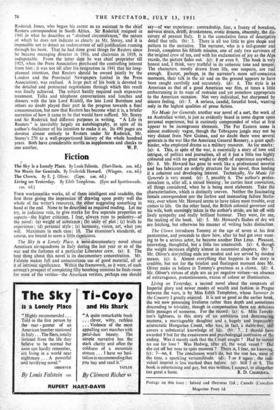Julius Reuter and After
THE centenary of Reuters, and the articles that event has inspired, have made the history of the greatest news agency in the world widely familiar, but there is still room for an objective competent volume, such as Mr. Graham Storey was commissioned to write, covering the developments and vicissitudes that the hundred years have seen. It has been a remarkable period, in that during the first ninety years of the agency's existence there were only three captains in command, Julius Reuter himself, his son Herbert, who succeeded, and Sir Roderick Jones, who began his career as an assistant to the chief Reuters correspondent in South Africa. Sir ROderiek resigned in 1941. in what he describes as "- strained circurfistances," the nature of which he does not indicate as clearly as Mr, Storey, and it is impossible not to detect an undercurrent of self-justification running through his book. That he had done great things for Reuters since he became managing director in 1916, and chairman in 1919, is indisputable. From the latter date he was chief proprietor till 1925, when the Press Association purchased the controlling interest from him ; it was not till after his resignation in 1941 that his long- planned intention, that Reuters should be owned jointly by the London and the Provincial Newipapers (united in the Press Association), was realised. A large part of his book is devoted to the detailed and protracted negotiations thrOugh which this result was finally achieved. The subject hardly required such expansive treatment. Talks and telephone conversations and lunches and dinners with the late Lord Riddell, the late Lord Burnham and others no -doubt played their part in the progress towards a final consummation, but now that Reuters has become what it is, a briefer narration of how it came to be that would have sufficed. Mr. Storey and Sir. Roderick had different purposes in writing. " A Life in Reuters " is inevitably largely an autobiography, in spite of its author's disclaimer of his intention to make it se.- Its 490 pages are devoted almost entirely to Reuters under Sir Roderick, Mr. Storey's 270to a well-pro_portioned history of the whole hundred years. Both "haVe considerable -merifif As _supplements and checks to







































 Previous page
Previous page